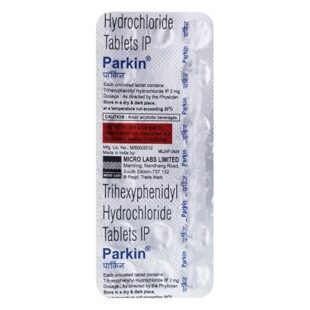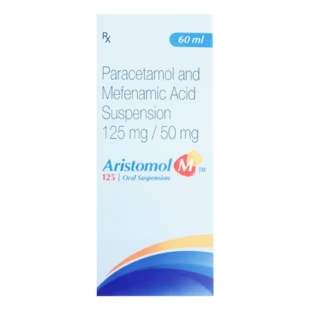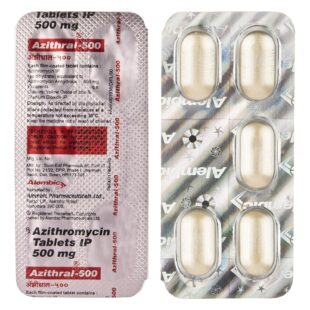- Your cart is empty
- Continue Shopping
Product Introduction
Sitara-M 50/1000 Tablet ER is a combination of two medicines used to manage high blood sugar levels in individuals with type 2 diabetes mellitus. By effectively controlling blood sugar, this medicine helps reduce the risk of serious diabetes-related complications such as kidney damage, vision problems, and heart conditions like heart attack or stroke.
This medicine can be prescribed on its own or in combination with other antidiabetic drugs. For the best results, it should be taken alongside a proper diet plan and regular physical activity. The dosage depends on your medical condition, current blood sugar levels, and any other medications you may be taking. It is advised to take this tablet with meals to minimize the chances of stomach upset.
To gain the maximum benefit, take it regularly at the same time every day and do not discontinue the medication unless directed by your doctor. Following a healthy lifestyle, including diet and exercise, is essential while on this treatment as it plays a crucial role in managing diabetes.
The most common side effects reported with Sitara-M 50/1000 Tablet ER include diarrhea, headache, and upper respiratory tract infections. If you are also taking medicines like insulin or sulfonylureas, there is a possibility of low blood sugar (hypoglycemia). It is important to be aware of its symptoms and how to manage it.
Before starting this medicine, inform your doctor if you have any history of kidney, liver, or heart problems, pancreatic disorders, or if you consume alcohol regularly. Pregnant or breastfeeding women should seek medical advice before taking this medication. Some other medicines may interact with Sitara-M 50/1000 Tablet ER, so inform your doctor about all the medications you are using. It is also advisable to limit or avoid alcohol consumption, as it can lower blood glucose. Your doctor may monitor your kidney function and blood sugar levels periodically during the treatment.
Uses of Sitara-M Tablet ER
Used for the management of type 2 diabetes mellitus
Benefits of Sitara-M Tablet ER
Sitara-M 50/1000 Tablet ER contains two active components that work together to effectively lower blood sugar levels. Keeping blood glucose under control is vital to prevent diabetes-related complications like kidney and nerve damage, vision loss, and poor circulation, which can lead to limb amputation. Proper management of diabetes also lowers the risk of cardiovascular issues such as heart attacks and strokes. Regular use of this medicine, combined with a healthy diet and exercise, allows you to lead a healthier, more active life. Continuous use as prescribed ensures long-term protection for your overall health.
Possible Side Effects
Most side effects are mild and tend to disappear as your body adapts to the medication. However, consult your doctor if they persist or cause concern.
Common side effects include:
- Diarrhea
- Headache
- Upper respiratory tract infection
How to Take Sitara-M Tablet ER
Take this medicine exactly as advised by your doctor. Swallow it whole without chewing, crushing, or breaking it. It is recommended to take the tablet with meals.
How It Works
Sitara-M 50/1000 Tablet ER combines sitagliptin and metformin. Sitagliptin works by increasing insulin production in the pancreas, improving the body’s use of insulin, and decreasing excess sugar production in the liver. Metformin, a biguanide, lowers glucose production in the liver, slows glucose absorption from the intestines, and enhances insulin sensitivity. Together, they help maintain better control over blood sugar levels.
Safety Information
- Alcohol: Avoid alcohol while taking this medicine as it can cause unsafe drops in blood sugar levels.
- Pregnancy: Safety data is limited. Consult your doctor before use during pregnancy.
- Breastfeeding: This medicine may pass into breast milk and could harm the baby. Medical consultation is recommended before use.
- Driving: If your blood sugar becomes too low or too high, it can affect your ability to drive safely. Avoid driving if you experience such symptoms.
- Kidney: Use with caution in patients with kidney problems. Dose adjustments may be required. It is not recommended for those with severe kidney disease. Regular kidney function monitoring is advised.
- Liver: This medicine may not be safe for individuals with severe liver issues and should generally be avoided.
Missed Dose
If you forget to take a dose, take it as soon as you remember. If it is almost time for your next dose, skip the missed dose and continue with your regular schedule. Do not take two doses at once.
Vendor Information
- Address:
- No ratings found yet!















Reviews
There are no reviews yet.